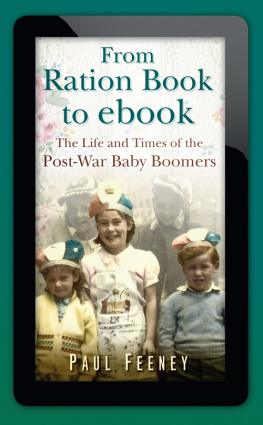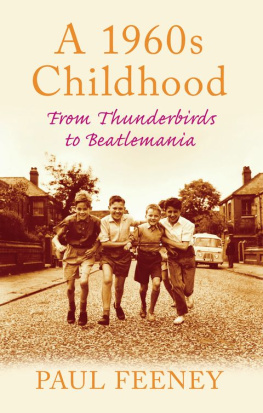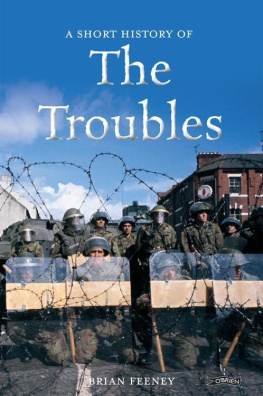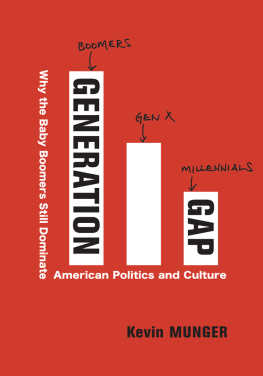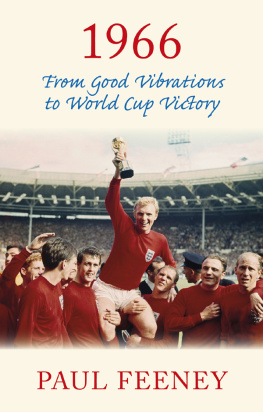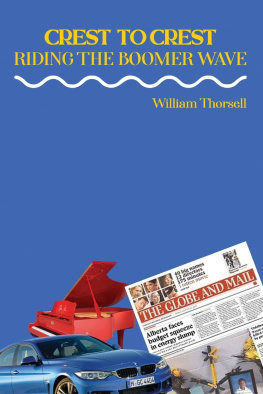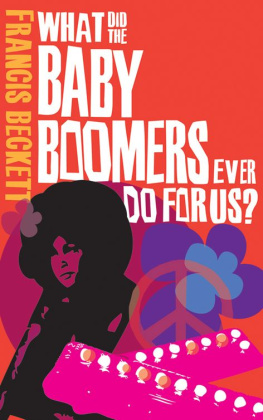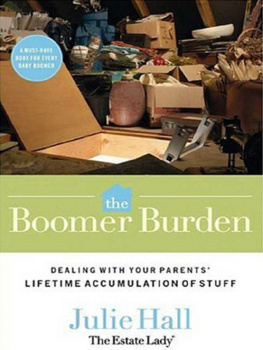
To all the baby boomers we lost along the way
I would like to thank the following people and organisations for giving permission to reproduce photographs in this book: front cover and Illustrated London News /Mary Evans. All other pictures and illustrations are from the authors collection. Every reasonable care has been taken to avoid any copyright infringements, but should any valid issue arise then I will look to correct it in subsequent editions.
The views and opinions expressed herein are those of the author and do not necessarily reflect the views of the publisher.
Contents
One |
Two |
Three |
Four |
Five |
Six |
Seven |
I t would take a lifetimes work and a volume of books to explain the complete history of life in Britain post-1945. This book is intended to provide a condensed insight into the life and times of those who were born in the years immediately following the Second World War when there was a sharp increase in the birth rate, known as the baby boom. There was another baby boom in the early 1960s and because of that the period from 1946 to 1964 is often referred to as the baby boom period. However, the term post-war baby boomer is used to describe the generation born between 1946 and 1952. This book covers the period from 1945 to 2012 and I hope it will act as a valuable lesson in British social history for young and old alike. More importantly, I trust it will serve to jog memories of times gone by for anyone who was around in the days before television took control of our lives and the nation became obsessed with modern-day consumerism. Above all, this trip back in time will touch each and every member of the post-war baby-boomer generation and remind them of their own journey through life, from as far back as their childhood in the austere Britain of the 1940s and 1950s, through to the smart technological age we live in today. The country and our whole way of life have changed beyond recognition and there is no going back, but we need to remember the past and learn from it, and some of us just need to wallow in the joys of nostalgia from time to time.
Paul Feeney
one
1940s
A t 7.40 p.m. on Monday 7 May 1945, BBC Radio reported that Germany had surrendered to the Allies and the war in Europe was over. It was declared that Tuesday 8 May would be an official day of celebration and a public holiday, which would be called Victory in Europe (VE) Day. The prime minister, Winston Churchill, was to make an official announcement the following afternoon. A whole week had gone by since news had reached us that Hitler had shot himself in the mouth and the British people were growing increasingly frustrated because, as yet, there had been no official broadcast from 10 Downing Street, and now Churchill was going to make everyone wait another day. There were rumours that German delegates had visited Field Marshal Montgomerys headquarters in Lneburg Heath in northern Germany to surrender their armies to the Western Allies, but we knew nothing for certain. There was a shroud of secrecy over events and we didnt know what was delaying the official announcement. The British people were not told at the time, but there were very good reasons why the war had dragged on for those extra few days. One reason was that the Allies were insistent they would only accept an unconditional surrender from Germany and nothing less. Then there was the problem with the German troops who had chosen to continue fighting the Russian Red Army on the Eastern Front rather than being captured by them, because they feared that the Russians might seek cruel retribution for the atrocities committed against their people during the German invasion of Russia. The final delaying factor was that the Allies had bowed to Russias insistence that the unconditional surrender be kept secret until Wednesday 9 May, but this agreement was scuppered by the Germans when they broke the news to their own people on German radio at 2.27 p.m. on Monday 7 May, and word of it soon spread around the world. Hence, everyone knew the war in Europe was over but the British public needed to hear it first-hand from the prime minister himself.
Meanwhile, throughout Britain, shop windows had been decked-out with tri-coloured rosettes and banners in anticipation of Churchills imminent declaration of peace in Europe. At least the public now knew that they only had to wait one more day to hear Churchills official broadcast. The interim news report of Germanys surrender was enough to trigger an immediate release of the tension that had been building up for several days. It was a big relief to everyone; it was as if people suddenly felt able to breathe again and the feeling of liberation produced a spontaneous outpouring of emotion. The public could not contain their overwhelming feeling of joy and they made it clear that they had no intention of waiting until the next day to begin celebrating their victory in Europe. All at once, a sea of red, white and blue began to spread across the nation; bunting was hung in criss-cross patterns along the streets and Union Jacks were draped from upstairs windows and lampposts. Although the mood in the country was a mixture of jubilation and sombre reflection, there was an irresistible desire for everyone to celebrate. The public outburst of pent-up emotion was not confined to a number of brash exhibitionists playing to an audience of onlookers; the news was so good that it inspired thousands of ordinary men and women, who would not usually say boo to a goose, to temporarily shed their inhibitions and dance in the street alongside complete strangers.
In London, where the biggest celebrations took place, the street scenes portrayed an atmosphere of unbridled happiness, which created a mood of genuine friendliness among people from all walks of life. Thousands of revellers besieged the areas around Piccadilly Circus and Trafalgar Square and the noisy festivities continued on throughout the evening. As night fell it became quite dark because there were no streetlights due to the blackout rules, but this did not deter the revellers. Adopting their typical wartime make do attitude, the crowds used newspapers to build small bonfires on the pavements to supplement beams of light emanating from night buses, which were slowly weaving their way through the hordes of high-spirited people filling the main roads. Even the overnight storm did not dampen the ever-increasing euphoria generating from the growing crowds. The police estimated that by midnight there were 50,000 people packed into Piccadilly Circus and celebrations were continuing to gather pace throughout London, and in every other town and city around the country. That evening, for the first time since the war began, the BBC was allowed to broadcast the weather forecast and it promised good weather ahead.
The merriment carried on overnight and Tuesday 8 May, VE Day, turned out to be a glorious summers day. People wore their Sunday best and women added to the cheerfulness of the day by sporting brightly coloured summer dresses. Newspaper headlines shouted Germany Surrenders. In London, there was hardly a cloud in the sky: perfect weather for the thousands of people who had crammed themselves into Trafalgar Square, Parliament Square and other public areas around central London to hear the Kings speech, which was to be relayed on specially erected loudspeakers. The country was very loyal to King George VI and the people undoubtedly shared the sentiment shown in his heart-rending Thanksgiving speech that day, but it was the words of Prime Minister Winston Churchill that they were most eager to hear. Their patience was eventually rewarded at 3.00 p.m. that day when Churchill made his famous End of War in Europe speech to the nation, broadcast live from the Cabinet Room at 10 Downing Street. In it, he announced that Germany had signed the act of unconditional surrender at 2.41 a.m. the previous day at the Supreme Headquarters Allied Expeditionary Force in Rheims, France. Churchill confirmed that the ceasefire was already in place and that hostilities would end officially at one minute past midnight that night. The assembled crowds cheered loudly and waved their flags even more vigorously when they heard Churchill say the words God bless you all. This is your victory! Hearing this touching phrase sparked renewed outbursts of loud cheering and enthusiastic flag-waving from the crowds of proud and happy people who had congregated in open spaces in every town and city across the length and breadth of the country. Church bells rang out throughout the land to mark the momentous occasion.
Next page
